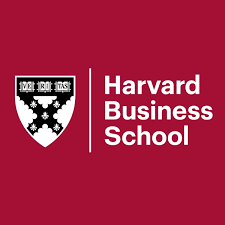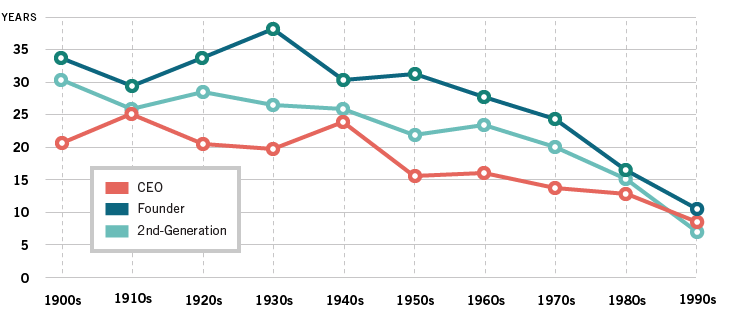Harvard Business School: The Strategy Behind Building a Global Leadership Empire
Business Case Study Series
Harvard Business School: A Comprehensive Business Case Study
1. Introduction
Harvard Business School (HBS) is one of the world’s most prestigious and influential business schools, recognized for shaping the future leaders of the global business landscape. Established in 1908, HBS offers a wide range of programs, including its flagship MBA program, executive education, and doctoral programs. This case study explores the business model, growth strategies, challenges, and adaptation of HBS in response to the evolving educational environment, providing insights for students on how an institution can maintain leadership in a competitive sector.
2. Institution Overview
Founded: 1908
Founder: Harvard University
Headquarters: Boston, Massachusetts, USA
Industry: Higher Education
Core Offerings: MBA Program, Executive Education, Doctoral Programs, Online Courses (HBX/Harvard Business School Online)
Global Presence: Harvard Business School has a global reputation with students, alumni, and programs spread across continents. Its case study method and thought leadership in management education are renowned worldwide.
3. Market Analysis
Market Size: The global higher education market is projected to reach $169 billion by 2028, with business education playing a crucial role. The demand for MBAs, executive education, and online courses continues to rise as business leaders seek to develop advanced skills in an increasingly complex world.
Consumer Behavior: Prospective MBA students are looking for prestigious, globally recognized programs that offer strong alumni networks, career advancement opportunities, and an immersive learning experience. Additionally, there is a rising demand for flexible learning options such as online courses.
Key Competitors: Stanford Graduate School of Business, Wharton School of the University of Pennsylvania, INSEAD, London Business School, MIT Sloan School of Management, and Columbia Business School.
4. Business Model
Harvard Business School operates a multifaceted business model that focuses on premium educational services, cutting-edge research, and executive development, funded by tuition, endowments, donations, and revenue from publishing.
Flagship MBA Program: The two-year full-time MBA program is HBS’s flagship offering. It provides a rigorous academic curriculum, global case studies, and access to an expansive alumni network. HBS charges one of the highest tuition fees in the world, reflecting the program’s premium positioning.
Executive Education: HBS offers a range of executive education programs tailored to senior leaders and executives. These short-term, intensive programs address leadership, strategy, and specific business challenges, contributing significantly to the school’s revenue.
Harvard Business Publishing: HBS’s publishing arm, Harvard Business Publishing (HBP), which includes Harvard Business Review (HBR) and case studies, generates a significant revenue stream. The case study method is central to the HBS teaching approach and is licensed to other business schools globally.
Harvard Business School Online (HBX): Launched in 2014, HBX offers online courses designed to expand HBS’s reach beyond traditional campus boundaries. The platform provides access to courses in management, entrepreneurship, finance, and more.
Revenue Streams:
Tuition Fees: The MBA and executive education programs are high-fee, high-value offerings, generating substantial income.
Endowments and Donations: HBS benefits from one of the largest endowments in the business school world, enabling investments in research, infrastructure, and scholarships.
Publishing and Case Studies: HBR subscriptions, case study licensing, and management books are critical revenue streams.
Executive Education: Non-degree programs for business leaders also contribute significantly to the school's bottom line.
5. Evolution and Growth
Early Beginnings: Established in 1908, HBS was one of the first business schools in the world to offer graduate-level education in management. The introduction of the case study method in 1921 set the school apart, and it remains a defining feature of the HBS experience.
Global Expansion: Over the years, HBS has expanded its reach globally. International case studies, partnerships, and executive programs have extended HBS’s influence to emerging markets like India, China, and Latin America.
Online Education: HBS recognized the growing demand for online education and launched Harvard Business School Online (HBX). This platform allows the school to provide accessible, high-quality business education to a global audience.
Executive Education Leadership: Harvard Business School’s executive education offerings have grown significantly, with tailored programs for global corporations, government leaders, and entrepreneurs. The school partners with leading organizations to deliver customized leadership training.
6. Operational Strategy
HBS’s strategy is centered on academic excellence, global influence, and innovation in pedagogy. The school’s case study method, world-class faculty, and emphasis on leadership development make it a leader in business education.
Case Study Method: The case study method is the cornerstone of HBS’s pedagogy. Students analyze real-world business scenarios and engage in deep discussions, helping them develop problem-solving and decision-making skills.
Research and Thought Leadership: HBS consistently invests in research, producing cutting-edge insights into management, economics, and global business trends. Faculty members publish widely and are influential thought leaders.
Alumni Network: One of HBS’s most valuable assets is its vast and influential alumni network. This network provides current students with unparalleled access to mentorship, internships, job placements, and entrepreneurial opportunities.
Global Partnerships and Expansion: HBS has established global research centers and partnerships with leading institutions worldwide. These initiatives help the school stay connected to global business trends and ensure that its students are prepared for the international business landscape.
Sustainability Initiatives: Harvard Business School has committed to sustainability, both in terms of its campus and curriculum. The school integrates social responsibility and environmental concerns into its business programs, fostering leaders who are mindful of sustainable business practices.
7. Financial Analysis
Revenue: HBS generates substantial revenue from tuition, executive education, Harvard Business Publishing, and endowments. The school’s total revenue exceeds $900 million annually, with the MBA program and executive education accounting for a significant portion.
Costs: Key expenses include faculty salaries, campus maintenance, research funding, and scholarships. HBS also invests heavily in maintaining its facilities, including state-of-the-art classrooms, research centers, and libraries.
Profitability: Despite the high operational costs, HBS remains highly profitable due to its strong revenue streams, diversified income sources, and large endowment, estimated at over $4 billion.
Endowments and Donations: HBS benefits from one of the largest endowments among business schools. Alumni and corporate donations play a significant role in financing scholarships, research, and infrastructure development.
8. Marketing and Customer Acquisition
Target Market: Harvard Business School targets top-tier business professionals, executives, and aspiring entrepreneurs worldwide. The MBA program appeals to high-potential individuals seeking a transformative educational experience, while the executive education programs cater to senior leaders and global organizations.
Marketing Channels: HBS uses a mix of direct marketing, online presence, media coverage, and partnerships with companies. The reputation of the school, the visibility of its faculty through publications like HBR, and its global alumni network are powerful marketing tools.
Brand Positioning: HBS is synonymous with prestige, leadership, and excellence. Its long history of producing successful business leaders and entrepreneurs helps maintain its reputation as a top business school.
Customer Engagement: Harvard Business School maintains strong relationships with its alumni through regular events, reunions, webinars, and career services. This network plays a key role in customer acquisition as alumni often encourage peers and employees to apply to HBS programs.
9. Challenges
Rising Competition: While HBS remains a leader, it faces increasing competition from other top business schools (e.g., Stanford, Wharton, and INSEAD) and new educational models such as online platforms like Coursera and edX.
Diversity and Inclusion: HBS has made significant strides toward improving diversity within its student body, but challenges remain. The school is under pressure to increase gender, racial, and socioeconomic diversity, which can enhance the learning experience for all students.
Cost and Accessibility: The high cost of an MBA at HBS, which exceeds $200,000 for the full program, limits accessibility for many potential applicants, despite available scholarships and financial aid.
Digital Disruption: The rapid growth of online education and micro-credentialing poses a challenge to traditional business school models. HBS must continue to innovate in online learning to stay competitive in this evolving landscape.
10. COVID-19 Impact
Transition to Online Learning: The COVID-19 pandemic forced HBS to rapidly transition to online learning for its MBA and executive education programs. The school successfully adapted to the new reality, leveraging its HBX platform and video conferencing tools.
Executive Education Decline: Executive education programs experienced a decline during the pandemic as businesses cut travel budgets and postponed leadership training. HBS responded by offering more online executive courses and virtual learning experiences.
Post-Pandemic Adaptation: Moving forward, HBS is likely to adopt a hybrid model that combines online and in-person learning, offering students and executives greater flexibility.
11. Future Prospects
Online Education Growth: The growth of Harvard Business School Online (HBX) represents a major opportunity for HBS. By expanding its online offerings and providing micro-credentialing options, HBS can reach a broader audience globally and capitalize on the increasing demand for flexible learning.
Global Expansion: HBS is expected to continue expanding its global presence through partnerships, research centers, and executive education programs. The school is particularly focused on growth in Asia, Latin America, and Africa.
Sustainability Focus: HBS’s commitment to sustainability in business education will continue to be a focal point. The school’s emphasis on responsible leadership and its integration of environmental, social, and governance (ESG) principles into the curriculum will resonate with future business leaders.
12. SWOT Analysis
Strengths:
Strong global brand recognition and prestige.
World-class faculty and cutting-edge research.
Vast alumni network with influence across industries.
Leadership in executive education and publishing.
Weaknesses:
High cost of education, limiting accessibility for some students.
Pressure to further diversify the student body and faculty.
Dependence on traditional campus-based learning models.
Opportunities:
Expansion of online and hybrid learning models.
Growing demand for executive education in emerging markets.
Increased focus on sustainability and ESG in business education.
Threats:
Rising competition from other top business schools and online platforms.
Economic uncertainty impacting enrollment in high-cost MBA programs.
Technological disruptions changing the landscape of higher education.
13. Strategic Recommendations
Expand Online Learning: HBS should continue to invest in its online learning platform (HBX) and explore new ways to offer hybrid learning options to meet the evolving demands of students and executives.
Enhance Diversity and Inclusion: HBS should focus on recruiting a more diverse student body by offering targeted scholarships, outreach programs, and partnerships with organizations promoting inclusivity.
Increase Global Presence: HBS should further expand its global footprint through partnerships with international institutions and local organizations, especially in emerging markets like Asia and Africa.
Focus on Sustainability: The school should deepen its integration of sustainability and ESG principles into the curriculum to align with the growing demand for responsible business leadership.
14. Conclusion
Harvard Business School remains a global leader in business education, combining tradition with innovation to prepare the next generation of business leaders. Its strong brand, rigorous academic programs, and extensive global network position it for continued success in the evolving landscape of higher education. By embracing online learning, increasing diversity, and expanding globally, HBS can maintain its leadership in the business school sector while addressing the challenges of the 21st century.
What The Home School of Business Offers:
Business News Letters We Offer:
Business Case Study Series, Scam Series, Leadership Series, Industry Series, City Series, 5 Minute reads.Startup Tips Guide Series: Get step-by-step guidance from idea inception to IPO.
Your journey from an idea to IPO starts here!
Visit our website for all Posts: CLICK HERE
Best Regards,
The Home School of Business Team
HSB Important Articles and References :Share your feedback and tell us which case studies you'd like to see next by filling out this quick Google form! Click Here
Harvard Business School Website : Click Here
HBS Online Courses : Click Here
Harvard Business School (Wikipedia) : Click Here
26 Most Successful HBS Alumni : Click Here
Harvard Business School vs Stanford GSB : The Comparison of the greatest : Click Here
Why should you go into a Business School ? : Click Here
HSB Video Vault :-








